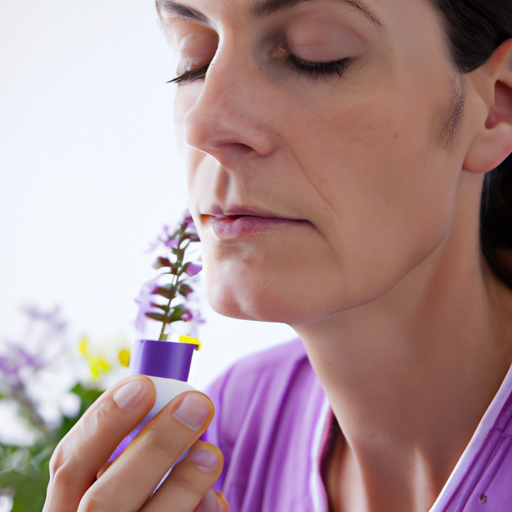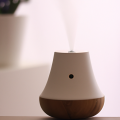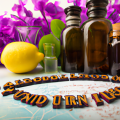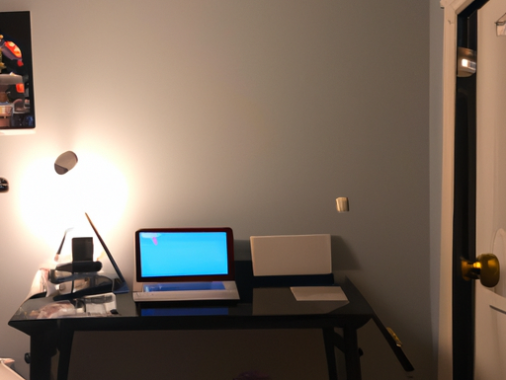-
Table of Contents
- Introduction
- What Are the Benefits and Risks of Inhaling Essential Oils?
- How to Safely Inhale Essential Oils for Maximum Benefit
- What Are the Best Essential Oils for Inhalation?
- How to Use Essential Oils for Aromatherapy Inhalation
- What Are the Different Methods of Inhaling Essential Oils?
- How to Make Your Own Essential Oil Inhaler
- What Are the Precautions to Take When Inhaling Essential Oils?
- Q&A
- Conclusion
Introduction
Inhaling essential oils is a popular way to enjoy the therapeutic benefits of aromatherapy. Essential oils are highly concentrated plant extracts that are used to promote physical and emotional wellbeing. While inhaling essential oils can be beneficial, it is important to understand the potential risks associated with this practice. This article will discuss the safety of inhaling essential oils, the potential benefits, and how to do it safely.
What Are the Benefits and Risks of Inhaling Essential Oils?
Inhaling essential oils is a popular practice that has been used for centuries to promote physical and mental wellbeing. Essential oils are highly concentrated plant extracts that are believed to have therapeutic properties. While inhaling essential oils can provide a range of benefits, there are also potential risks associated with this practice.
The primary benefit of inhaling essential oils is that it can help to reduce stress and anxiety. Studies have shown that inhaling certain essential oils can help to reduce cortisol levels, which is the hormone associated with stress. Inhaling essential oils can also help to improve mood, reduce fatigue, and promote relaxation. Additionally, some essential oils have antimicrobial properties, which can help to reduce the risk of infection.
However, there are also potential risks associated with inhaling essential oils. Inhaling essential oils can cause irritation to the lungs and airways, leading to coughing, sneezing, and difficulty breathing. Additionally, some essential oils can be toxic if inhaled in large amounts. It is important to use caution when inhaling essential oils, as some can be highly concentrated and can cause adverse reactions if used improperly.
In conclusion, inhaling essential oils can provide a range of benefits, including reducing stress and anxiety, improving mood, and reducing fatigue. However, it is important to use caution when inhaling essential oils, as some can be toxic if inhaled in large amounts. It is recommended to consult with a healthcare professional before using essential oils to ensure that they are used safely and effectively.
How to Safely Inhale Essential Oils for Maximum Benefit
Inhaling essential oils is a popular way to enjoy their therapeutic benefits. When done safely, it can be an effective way to improve your physical and mental wellbeing. Here are some tips to help you get the most out of your essential oil inhalation experience.
1. Dilute the Essential Oil: Essential oils are highly concentrated and can be irritating to the skin and mucous membranes. To avoid any potential irritation, it is important to dilute the essential oil with a carrier oil such as jojoba, almond, or coconut oil. The recommended dilution ratio is 1 drop of essential oil to 10 drops of carrier oil.
2. Use an Aromatherapy Diffuser: An aromatherapy diffuser is a device that disperses essential oils into the air. This is the safest and most effective way to inhale essential oils. It also helps to ensure that the essential oils are evenly distributed throughout the room.
3. Inhale Directly from the Bottle: If you don’t have an aromatherapy diffuser, you can still inhale essential oils directly from the bottle. To do this, hold the bottle about 6 inches away from your nose and take a few deep breaths. Be sure to keep your eyes closed to avoid any potential irritation.
4. Use a Handkerchief: Another way to inhale essential oils is to place a few drops on a handkerchief and inhale the aroma. This method is especially useful if you are on the go and don’t have access to an aromatherapy diffuser.
5. Use Caution: Some essential oils can be irritating to the skin and mucous membranes. Be sure to use caution when inhaling essential oils and avoid any that may cause irritation.
By following these tips, you can safely and effectively inhale essential oils and enjoy their therapeutic benefits.
What Are the Best Essential Oils for Inhalation?
Essential oils are a popular natural remedy for a variety of ailments, and inhalation is one of the most common methods of use. Inhalation is a safe and effective way to reap the benefits of essential oils, as it allows the oils to be absorbed directly into the bloodstream.
The best essential oils for inhalation are those that are known to have calming, soothing, and anti-inflammatory properties. Lavender, chamomile, and eucalyptus are some of the most popular essential oils for inhalation.
Lavender is known for its calming and relaxing effects, and it is often used to reduce stress and anxiety. It can also help to reduce inflammation and promote better sleep.
Chamomile is another popular essential oil for inhalation. It is known for its calming and soothing effects, and it can help to reduce stress and anxiety. It is also known to have anti-inflammatory properties, which can help to reduce inflammation in the body.
Eucalyptus is another popular essential oil for inhalation. It is known for its anti-inflammatory and decongestant properties, and it can help to reduce inflammation in the respiratory system. It is also known to have calming and soothing effects, which can help to reduce stress and anxiety.
In addition to these three essential oils, there are many other essential oils that can be used for inhalation. Peppermint, rosemary, and tea tree are some of the other popular essential oils for inhalation. Each of these oils has its own unique benefits, and it is important to research the properties of each oil before using it.
Inhalation of essential oils is a safe and effective way to reap the benefits of these natural remedies. By choosing the right essential oils for inhalation, you can enjoy the calming, soothing, and anti-inflammatory effects of these oils.
How to Use Essential Oils for Aromatherapy Inhalation
Aromatherapy inhalation is a popular and effective way to use essential oils to promote relaxation and wellbeing. Essential oils are highly concentrated plant extracts that contain a variety of therapeutic compounds. When inhaled, these compounds can have a calming effect on the body and mind.
To use essential oils for aromatherapy inhalation, you will need an essential oil diffuser. This device disperses the essential oil into the air, allowing you to inhale the therapeutic compounds. You can also use a bowl of hot water and a towel to create a steam inhalation. Simply add a few drops of essential oil to the hot water and cover your head with the towel to create a tent. Inhale the steam for a few minutes.
When using essential oils for aromatherapy inhalation, it is important to use only pure, therapeutic-grade essential oils. These oils are free from synthetic additives and are safe to use. It is also important to use the correct amount of essential oil. Too much can be overwhelming and may cause irritation. A general guideline is to use 2-3 drops of essential oil per 100ml of water.
Once you have chosen your essential oil, you can begin your aromatherapy inhalation. Start by taking a few deep breaths to relax your body and mind. Then, turn on your diffuser or create your steam inhalation. Inhale the therapeutic compounds for 5-10 minutes. You can also use a few drops of essential oil on a tissue or cotton ball and inhale the scent directly.
Aromatherapy inhalation is a simple and effective way to use essential oils to promote relaxation and wellbeing. With the right essential oil and the correct amount, you can enjoy the therapeutic benefits of aromatherapy inhalation.
What Are the Different Methods of Inhaling Essential Oils?
Inhaling essential oils is a popular way to enjoy the therapeutic benefits of these natural substances. There are several different methods of inhaling essential oils, each of which has its own advantages and disadvantages.
The most common method of inhaling essential oils is through direct inhalation. This involves placing a few drops of essential oil onto a tissue or cotton ball and then inhaling the aroma. This method is simple and convenient, but it does not allow for a sustained release of the essential oil’s aroma.
Another popular method of inhaling essential oils is through the use of a diffuser. A diffuser is a device that disperses essential oils into the air. This method allows for a sustained release of the essential oil’s aroma, making it ideal for aromatherapy.
A third method of inhaling essential oils is through steam inhalation. This involves adding a few drops of essential oil to a bowl of hot water and then inhaling the steam. This method is effective for clearing the sinuses and can also help to reduce congestion.
Finally, some people choose to inhale essential oils through the use of a personal inhaler. This device is designed to hold a few drops of essential oil and then release the aroma when the user inhales. This method is convenient and allows for a sustained release of the essential oil’s aroma.
In conclusion, there are several different methods of inhaling essential oils. Each method has its own advantages and disadvantages, so it is important to choose the one that best suits your needs.
How to Make Your Own Essential Oil Inhaler
Essential oil inhalers are a great way to enjoy the benefits of aromatherapy without having to use a diffuser. They are small, portable, and easy to use. Making your own essential oil inhaler is a simple process that requires only a few materials.
To make your own essential oil inhaler, you will need:
• An empty inhaler tube
• Cotton wick
• Essential oil of your choice
• Scissors
• Tweezers
• A small bowl
• A paper towel
First, cut the cotton wick to the desired length. The wick should be long enough to fit inside the inhaler tube with some extra length to spare.
Next, place the wick in the small bowl and add a few drops of your chosen essential oil. Allow the wick to soak up the oil for a few minutes.
Once the wick is saturated with oil, use the tweezers to remove it from the bowl and place it inside the inhaler tube. Make sure the wick is centered in the tube and that it is not too tightly packed.
Finally, use the paper towel to wipe away any excess oil from the outside of the inhaler tube. Your essential oil inhaler is now ready to use.
To use your inhaler, simply hold it up to your nose and inhale deeply. You can also place the inhaler in your pocket or purse for easy access.
Making your own essential oil inhaler is a simple and cost-effective way to enjoy the benefits of aromatherapy. With just a few materials and a few minutes of your time, you can create a portable and convenient way to enjoy the therapeutic effects of essential oils.
What Are the Precautions to Take When Inhaling Essential Oils?
When inhaling essential oils, it is important to take certain precautions to ensure safety. First, it is important to dilute essential oils with a carrier oil before applying them to the skin. This will help to reduce the risk of skin irritation or sensitization. Additionally, it is important to avoid direct inhalation of essential oils, as this can cause irritation to the lungs and airways. Instead, it is recommended to use a diffuser or vaporizer to disperse the essential oils into the air.
It is also important to be aware of any potential allergies or sensitivities to essential oils. If you have any known allergies or sensitivities, it is best to avoid using essential oils altogether. Additionally, it is important to be aware of the concentration of essential oils being used. Higher concentrations of essential oils can be more irritating to the skin and airways, so it is important to use the lowest concentration possible.
Finally, it is important to be aware of the safety guidelines for each essential oil. Different essential oils have different safety guidelines, so it is important to research each oil before using it. Additionally, it is important to be aware of any contraindications for certain essential oils. For example, some essential oils should not be used during pregnancy or on children.
By following these precautions, you can ensure that you are safely and effectively using essential oils.
Q&A
1. Is it safe to inhale essential oils?
Yes, it is generally safe to inhale essential oils, as long as you are using a high-quality, therapeutic grade oil. However, it is important to use caution when inhaling essential oils, as some oils can be irritating to the lungs and mucous membranes.
2. What are the benefits of inhaling essential oils?
Inhaling essential oils can provide a variety of benefits, including relaxation, improved mood, and relief from stress and anxiety. Inhaling essential oils can also help to clear the sinuses and improve respiratory health.
3. How do I inhale essential oils?
The most common way to inhale essential oils is through aromatherapy. This involves using a diffuser to disperse the essential oil into the air, which can then be inhaled. You can also place a few drops of essential oil on a tissue or cotton ball and inhale the scent directly.
4. Are there any risks associated with inhaling essential oils?
Yes, there are some risks associated with inhaling essential oils. Inhaling essential oils can be irritating to the lungs and mucous membranes, and some oils can cause allergic reactions. It is important to use caution when inhaling essential oils and to always use a high-quality, therapeutic grade oil.
5. How long should I inhale essential oils?
The length of time you should inhale essential oils will depend on the type of oil you are using and the desired effect. Generally, it is recommended to inhale essential oils for no more than 10 minutes at a time.
6. Can I use essential oils in a steam inhalation?
Yes, you can use essential oils in a steam inhalation. This involves adding a few drops of essential oil to a bowl of hot water and then inhaling the steam. This can help to clear the sinuses and improve respiratory health.
7. Are there any essential oils that should not be inhaled?
Yes, there are some essential oils that should not be inhaled, such as eucalyptus, camphor, and wintergreen. These oils can be irritating to the lungs and mucous membranes and should be avoided.
Conclusion
In conclusion, inhaling essential oils can be beneficial for some people, but it is important to be aware of the potential risks. It is best to consult with a healthcare professional before using essential oils, as they can be powerful and can interact with medications. Additionally, it is important to use essential oils safely and in moderation.




